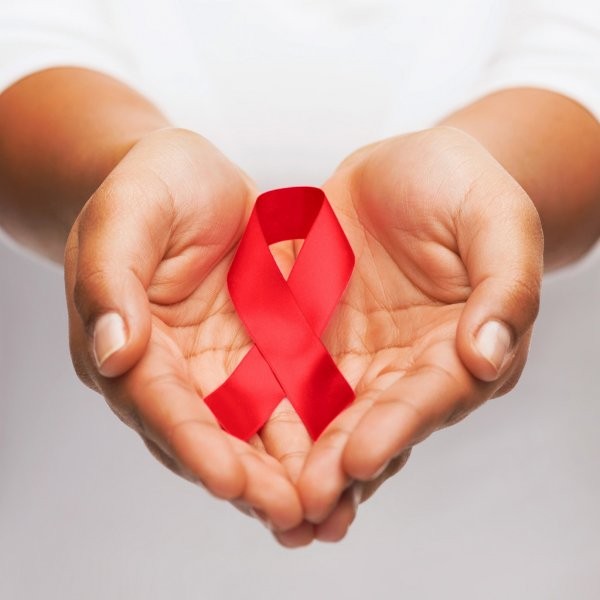
Обычная версия сайта
Republic of Kazakhstan, Almaty, Raimbek Ave., 60
Location map+7 (727) 39742 23 Reception
+7 (727) 39742 17 Registry
+7 (727) 39742 06 Helpline
1414 Single contact center


Обычная версия сайта
Republic of Kazakhstan, Almaty, Raimbek Ave., 60
Location map+7 (727) 39742 23 Reception
+7 (727) 39742 17 Registry
+7 (727) 39742 06 Helpline
1414 Single contact center

November 16, 2020
The campaign initiated by UNAIDS “Global Solidarity, Shared Responsibility” is being carried out on the eve of the World AIDS Day, and it will take place from 16 to 24 November in our country.
The COVID-19 pandemic around the world has demonstrated that health is closely intertwined with other important issues, including reducing inequality, rights, gender equality, social protection and economic growth. Nobody is safe until everyone is protected. If we want to succeed altogether, no one should be left unattended.
«Our new vision of global health response is required by Global solidarity and shared responsibility, including the response to HIV. In order to stop the HIV infection spread, it is necessary to eliminate stigma and discrimination, and public activity and solidarity should become a guarantor of providing people affected by HIV with information, services, and social protection”, believes Bauyrzhan Baiserkin, the director of the Kazakh Scientific Center of Dermatology and Infectious Diseases of the Ministry of Health of the Republic of Kazakhstan (KSCDID).

As part of the campaign, various events will take place throughout the country. Most of them are online. NGO employees of the Kazakhstan Union of People Living with HIV (KazUnion) and key groups communities’ members will release videos on PLHIV solidarity on social networks; in the regions of the Global Fund to Fight AIDS, Tuberculosis and Malaria operations activists will distribute face masks with the campaign slogan. Bakhtiyar Artayev, Olympic champion, UNAIDS special sports ambassador, will give speech against PLHIV stigma and discrimination in the PLHIV Central Asian Association social video. During the campaign days, the Global Health Research Center of Central Asia will present a new project on HIV self-testing among sex workers and attaching them to medical care in case of a positive rapid test result.
Almaty doctors will hold the “Show Solidarity, Almaty” Challenge to hand over a red ribbon - a symbol of the fight against AIDS, which is designed to draw the attention of all people in white coats to stigma and discrimination inappropriateness towards people living with HIV. A challenge "My HIV prevention contribution" is planned in Nur-Sultan, as a reminder of the knowledge importance of HIV transmission routes and protection measures against infection for everyone. “I choose life!" online drawing contests will be held in Almaty, Karaganda and North Kazakhstan regions, as well as in Semey city. Akmola region journalists will be able to take part in the best publication competition “HIV infection: prevention, diagnosis and treatment", and outreach workers from Kostanay will be able to participate in a challenge to popularize their work. Trainings and intellectual games for students "Know in order to live!" are planned in the West Kazakhstan and Atyrau regions.
Among the World Campaign partners of the KSCDID and regional AIDS Centers are UNAIDS, the Global Fund to Fight AIDS, Tuberculosis and Malaria, WHO, the Kazakhstan Union of People Living with HIV, the PLHIV Central Asian Association, the Global Health Research Center of Central Asia, the Health Administrations and others.
The World Campaign relevance is underlined by the figures and trends in the HIV epidemic development in the world. According to the UNAIDS data, over the next ten years, the main increase in new HIV cases will be registered in the Eastern Europe and Central Asia countries. The same trend is observed in our country. Today, more than 27,000 people live with HIV in Kazakhstan and all of them can receive free treatment immediately after identified diagnosis.
There is a steady trend towards an increase in the sexual transmission route. In the dynamics of the HIV infection epidemic process, as a result of the measures taken, the parenteral transmission route through intravenous drug use has decreased two times from 72% in 2006 to 33% in 2019. Over the past ten years, the PLHIV mortality rate has decreased by 1.5 times. 80% of PLHIV die from diseases associated with HIV-infections, not from AIDS. Over the past decade another achievement of the country has been a fourfold reduction in the mother-to-child transmission of HIV. Pregnant women with HIV in 98% cases give birth to healthy children.

